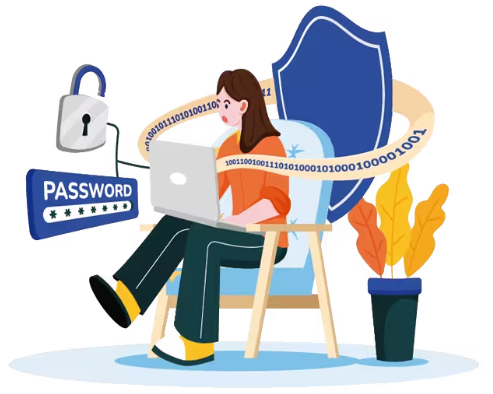Let’s Encrypt: Is It Enough or Should You Invest in a Paid SSL Certificate?

Let’s Encrypt has become synonymous with free SSL certificates. Millions of websites use it, and its growth has been explosive, mainly due to its ease of use, free availability, and the ability to automate renewals. However, while it is a valuable tool, it is not always the most suitable option, especially when user trust and brand reputation are at stake.
What is Let’s Encrypt and why is it so popular?
Let’s Encrypt is a free Certificate Authority (CA) that issues SSL/TLS certificates to enable secure connections via HTTPS. Its mission is to democratize web security, allowing even small projects to protect user data at no cost.
Major companies like Google, Mozilla, and Cisco support the project because it helps create a safer Internet. The process is fully automated and fast, which has facilitated its widespread adoption. This is why Let’s Encrypt is the most popular option when looking for a free and easy-to-install SSL certificate.
Is Let’s Encrypt secure?
Yes, it is—though not necessarily for everyone. It uses the same cryptographic standards as other certificate authorities, so the SSL encryption between user and server is equally strong. Technically, it performs its function of securing data in transit effectively.
However, Let’s Encrypt only validates that the applicant controls the domain. It does not verify who is behind the site, unlike paid certificates with Organization Validation (OV) or Extended Validation (EV). This can be problematic, as anyone can obtain a free certificate—even with malicious intent.
For example, an attacker could create a fake bank page, get a DV certificate from Let’s Encrypt, and display the padlock icon, giving users a false sense of security.
Who should use Let’s Encrypt?
Let’s Encrypt is ideal for:
- Personal blogs or portfolios
- Informational websites without transactions
- Educational or open-source projects
- Internal APIs or testing environments
- Small websites with moderate traffic
Who should consider a paid alternative?
When trust, reputation, and legal backing are essential, a free certificate may not be enough. This includes:
- Online stores and sites with payment systems
- Businesses handling sensitive customer data
- SaaS platforms or professional services
- Government or institutional websites
- Projects requiring verified identity
- Environments needing professional technical support
Alternatives to Let’s Encrypt: DV, OV, and EV
Major Certificate Authorities such as DigiCert, Sectigo, GlobalSign, and Entrust offer paid certificates at different validation levels:
DV Certificate (Domain Validation)
Only validates that the applicant controls the domain. Similar to Let’s Encrypt, but includes technical support, financial guarantees, and higher perceived trust. Ideal for professional projects not yet requiring identity validation.
OV Certificate (Organization Validation)
The CA verifies the legal identity of the company and its connection to the domain. Builds user trust and is ideal for SMBs, SaaS, and professional services. Significantly enhances credibility compared to Let’s Encrypt.
EV Certificate (Extended Validation)
Requires thorough verification of the owner, including legal documentation and trademark rights. Ideal for banks, large e-commerce platforms, and websites handling sensitive data. Provides maximum trust and protection against impersonation.
Is it worth paying for an SSL certificate?
It depends on the project. If your site represents a brand, generates revenue, or needs to convey professional trust, investing in a paid SSL certificate can make a significant difference.
If your website is personal, experimental, or has a limited scope, Let’s Encrypt might be enough without incurring extra costs.
Knowing what your business needs is key
Let’s Encrypt has democratized web security and is an excellent solution for many projects. But not all websites have the same needs. While some only require encryption, others also need to prove identity, build trust, and offer professional support.
The question isn’t whether Let’s Encrypt is “good” or “bad,” but whether it’s enough for your project’s security, reputation, and expectations. Because securing the connection is not always the same as securing trust.
Check out the different options on our domain page.










